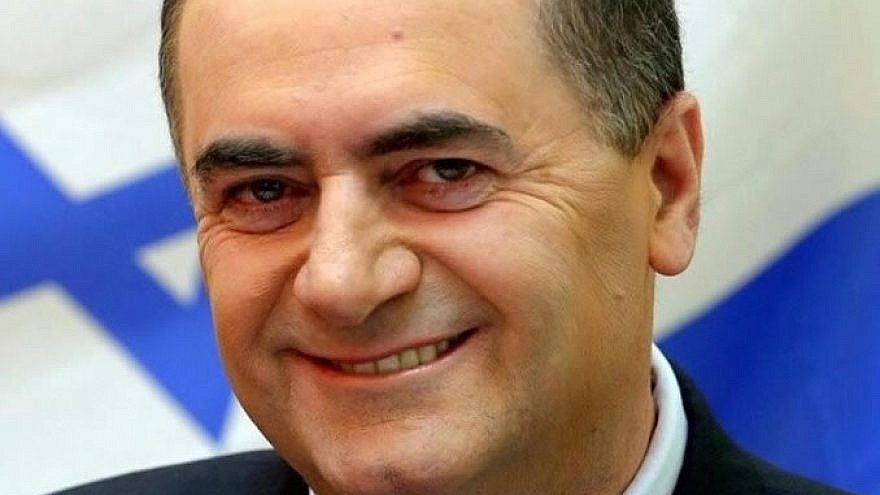The Cabinet, today (Sunday, 16 August 2020), approved the details of Prime Minister Benjamin Netanyahu’s and Finance Minister Yisrael Katz’s approximately NIS 8.5 billion plan to accelerate the economy and assist government ministries and populations at risk in dealing with the corona crisis.
These plans are part of the ‘economic safety net’ plan that Prime Minister Netanyahu and Finance Minister Katz declared at the start of July.
Prime Minister Netanyahu:
“In the Cabinet, we have just approved an additional NIS 8.5 billion in incentives for our economy and to create jobs. I know that there is still great economic distress – we are working around the clock to make things easier for you, citizens of Israel.”
“In recent weeks, the Finance Ministry and the Prime Minister’s Office have worked with the various government ministries to formulate a package of projects and plans to be implemented in the short term, that are highly feasible economically and which can rapidly increase the number of jobs in the economy. The projects have been approved by the Economic Cabinet chaired by Prime Minister Netanyahu and Defense Minister / Alternate Prime Minister Benny Gantz.
“The decision includes budgets for a series of projects in transportation, infrastructures for housing, technology and high-tech, tourism, sports, social welfare, energy efficiency and other fields. The decision is designed – inter alia – to provide incentives for investment in local industries and in shortening government credit days to small and medium-sized suppliers in order to encourage demand and accelerate the Israeli economy that is in crisis. As per estimates, beyond their economic utility, it is anticipated that these projects will create over 10,000 new jobs in the economy.”
Following are among the projects that have been budgeted in the Prime Minister’s and Finance Minister’s plan:
- Over NIS 2 billion in immediate budgeting for several transportation projects that are in a high level of readiness vis-à-vis implementation, including Section D of the eastern rail line between El Al junction and Lod; starting implementation of widening road #85 between Carmiel junction and Hananya junction; road #264 between Eshel junction and Beit Kama; and road #71 between Issachar junction and Beit Shean, including interchanges and laying out junctions along the route; and immediate budgeting for advancing the red line in Tel Aviv in order to prevent stopping advanced work due increasing costs associated with the project.
- NIS 750 million for housing infrastructures in order to support the marketing of thousands of residential units throughout the country so as to increase the supply of housing in the economy and accelerate the construction sector and its ancillary sectors.
- A NIS 750 million allocation has been proposed to advance the high-tech sector and leading technological edge in the State of Israel via national plans to promote advanced technologies, expand Innovation Authority grant tracks a plan to deal with a shortage of trained personnel in the high-tech sector.
- A budget for a government move to a public cloud that will be established in Israel, which is expected to lead – in the medium term – to savings in government IT costs, encourage innovation in the public sector, increase the level of information security and encourage investments in local industry.
- A budget to issue a joint Environmental Protection Ministry—Innovation Authority public appeal to support start-ups that create technologies that increase the efficiency of environmental regulation and promote growth in the industry; a budget to encourage investment in local industry via the capital-intensive tracks of the Economy and Industry Ministry Investment Center.
- An economic and tourist development budget for tourism authorities in the Galilee and on the Golan Heights.
- A budget for upgrading sports facilities via public Sports and Culture Ministry appeals; a budget for establishing new hostels for young people at risk and additional projects.
- A budget for applying payments law to small and medium-sized suppliers to health institutions. Regulations to this effect will be issued separately.
#
The acceleration plan does not require legislative changes. Upon its approval by the Cabinet, it will be possible to act immediately toward implementing it.
#
The Prime Minister’s and Finance Minister’s plan also includes a NIS 3.4 billion allocation for government ministries and populations at risk that need designated assistance to deal with the corona crisis:
- Approximately NIS 700 million for professional training and employment incentives
- Approximately NIS 700 million for ensuring food security for weakened families
- NIS 600 million foe extending adjustment grants for people over 67 who were put on unpaid leave by June 2021
- NIS 350 million for expanding eligibility for permanent expenses grants for businesses with up to NIS 400 million in annual turnover
- NIS 150 million in assistance to senior citizens and senior citizens in need
The plan also includes budgets for various grants to – inter alia – social workers, the handicapped, discharged soldiers, new immigrants and residents of shelters for battered women.
These amounts are included in the plan approved by the Cabinet on 13 July 2020 and constitute part of the increased budgetary framework. Sections – such as extending adjustment grants for people over 67 – were approved in legislation in the framework of approval for the expanded economic plan.

























